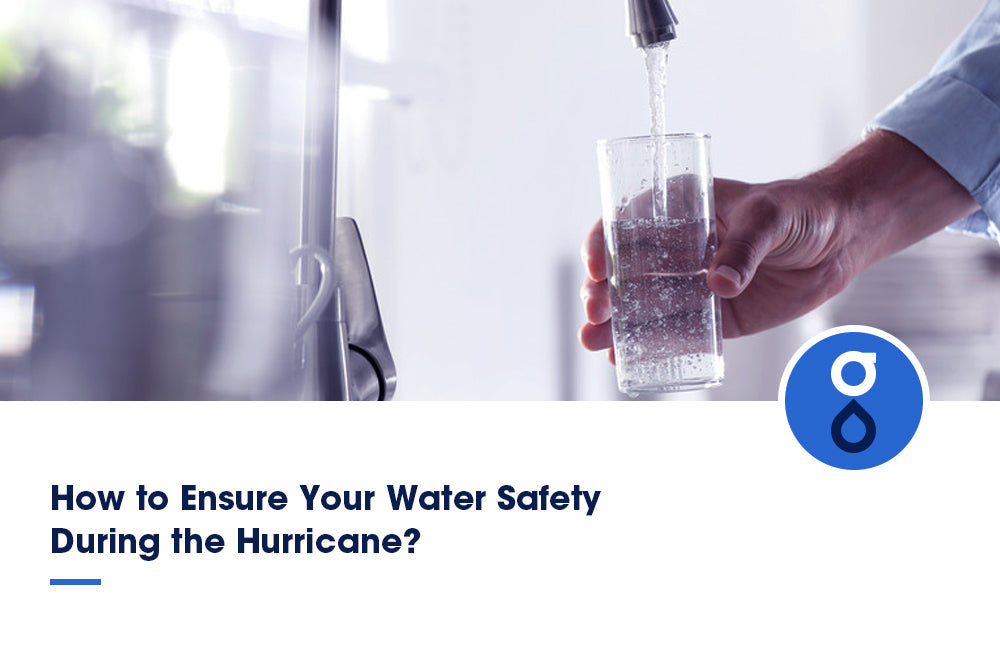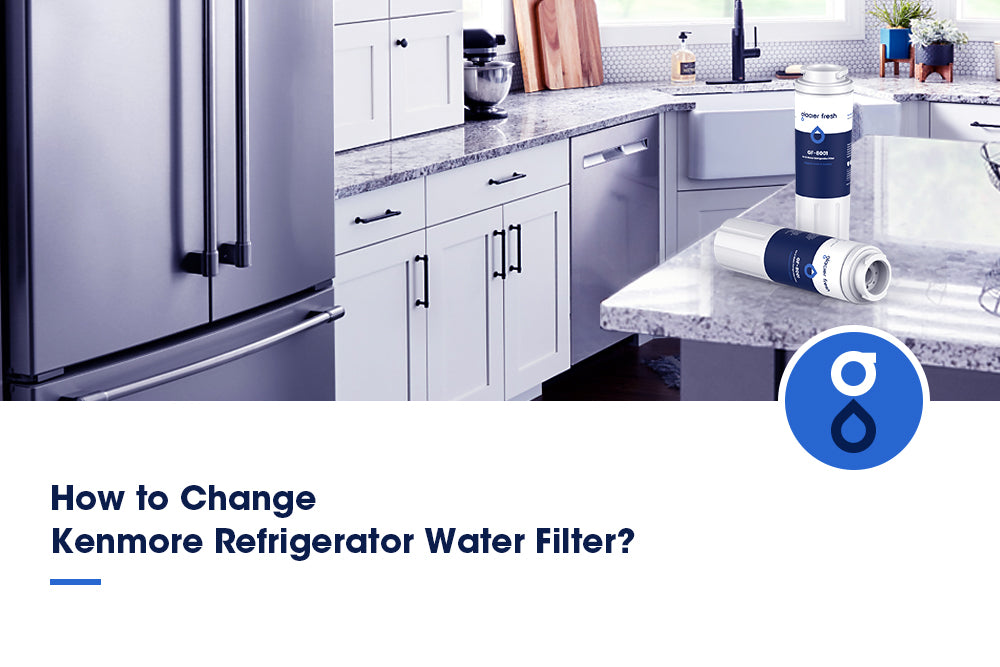Table of Contents:
The health risks of hurricanes bring to water safety
Preparations for safe water before the storm hits
Purifying water sources during power outages
Steps to take for water safety after the hurricane
FAQs
Conclusion
Are you prepared to keep yourself safe during a hurricane? One crucial aspect to consider is the safety of your water supply. In this article, we will guide you on how to ensure your water safety during the hurricane. We will provide practical steps, from making necessary preparations before the storm hits to purifying water sources during power outages. Take your time regarding your health - let's get started!
The health risks of hurricanes bring to water safety

The health risks that hurricanes bring to water safety can be significant. Contaminated wells, waterborne diseases, flooding hazards, lack of emergency water supply, and the need for water quality testing are some of the key concerns during and after a hurricane.
One of the major risks is the contamination of wells. Heavy rainfall and flooding can seep into the groundwater, polluting wells and making drinking water unsafe. This can lead to the spread of waterborne diseases such as cholera, dysentery, and typhoid fever. Flooding can also cause sewage systems to overflow, contaminating the water supply. Flooding hazards are also a major concern during hurricanes. In areas prone to flooding, there is a higher risk of water contamination from chemicals, debris, and sewage. This contaminated water can pose serious health risks if consumed or used for basic hygiene.
Having an emergency water supply is crucial during a hurricane. It is recommended to have at least one gallon of water per person per day for drinking and basic hygiene. This supply should be stored in clean, airtight containers and should be regularly rotated to ensure freshness. Water quality testing is essential after a hurricane to ensure the safety of the water supply. Testing should be done for bacteria, chemicals, and other contaminants. If any issues are found, appropriate treatment methods should be implemented to make the water safe for consumption.
Taking these precautions and being aware of the health risks associated with hurricanes can help ensure the safety of your water supply during and after a storm.
Preparations for safe water before the storm hits
Make sure to gather enough clean water before the storm arrives. This is crucial for ensuring your water safety during a hurricane. Here are three important steps to take to prepare your water supply:
1. Stock up on emergency supplies: As part of your hurricane preparedness kit, include enough bottled water to sustain you and your family for at least three days. The general rule of thumb is to have one gallon of water per person daily. Additionally, consider purchasing water purification tablets or a portable water filter as backup options.
2. Ensure proper water storage: Store your emergency water supply in sturdy, sealable containers that are specifically designed for water storage. Avoid using containers that previously held chemicals or food, as they may contaminate the water. Place these containers in a cool, dark place to prevent bacterial growth. Remember to regularly check the expiration dates on your bottled water and rotate your supply as needed.
3. Practice water treatment: In case your stored water runs out, knowing how to treat unsafe water is important. Boiling water is the most effective method of killing harmful bacteria and parasites. If boiling is impossible, you can use water disinfectant tablets or bleach to purify the water. Follow the instructions provided and wait the recommended time before consuming.
Purifying water sources during power outages
Purifying water sources can be challenging during power outages, but alternative methods are available.
Boiling water
To ensure your water is safe to drink during the hurricane, boil it for at least one minute. Boiling water is one of the most effective ways to kill harmful bacteria, viruses, and parasites that may be present in the water. When boiling water, use a clean pot and bring the water to a rolling boil. Keep it boiling for a full minute, then let it cool before using. Remember to cover the pot while boiling to prevent any contaminants from entering. Boiling water not only kills harmful organisms but also helps to remove any chemical impurities that may be present. It is a simple and cost-effective method to ensure the safety of your drinking water during a hurricane.
Using water filters
Using gravity water filter system is an effective way to remove contaminants and ensure the quality of your drinking water. Here are four reasons why you should consider using portable filtration systems or DIY filters for emergency water purification:
1. Convenience: Portable water filters are compact and lightweight, making them easy to carry and use during emergencies or on-the-go.
2. Versatility: DIY water filters can be constructed using common household items such as activated charcoal, sand, and gravel. This allows you to create a filtration system even when traditional options are unavailable.
3. Cost-effective: Investing in a gravity water filter or creating your DIY filter can save you money in the long run, as you won't have to rely on purchasing bottled water during emergencies.
4. Peace of mind: By using water filters, you can have peace of mind knowing that you are removing harmful contaminants and ensuring the safety of your drinking water, even in emergencies.
Chemical disinfection
Without other water treatment options, such as filtration systems, chemicals like chlorine or iodine can disinfect water. These chemicals work by attacking the bacteria and viruses, rendering them harmless. Following the instructions carefully and using the correct dosage is essential to ensure adequate disinfection.
While chemical disinfection can be an effective solution during emergencies, it is necessary to remember that it may not remove other contaminants like chemicals or heavy metals. Therefore, it is advisable to use additional methods, such as filtration or boiling, whenever possible to ensure safe drinking water.
Steps to take for water safety after the hurricane
After the hurricane, you'll want to follow these steps to ensure water safety.
1. Inspect and clean your water sources: Check your wells, cisterns, and other water sources for damage or contamination. Clear any debris and disinfect the water sources before using them.
2. Boil or treat your water: Since the hurricane may have caused contamination of water sources, it's important to boil or treat the water before using it for drinking, cooking, or brushing your teeth. Boiling water for at least one minute or using water purification tablets or filters can help remove harmful bacteria and viruses.
3. Avoid exposure to floodwater: Floodwater can contain harmful bacteria and chemicals. Avoid contact with floodwater as much as possible. If you must come into contact with it, wash thoroughly with soap and clean water afterward.
4. Prepare an emergency water supply: If your regular water supply is compromised, it's essential to have it on hand. Store at least one gallon of water per person daily for drinking and sanitation purposes. Use clean containers and replace the water supply every six months.
FAQs
How long should I wait before using tap water after a hurricane?
It would help if you waited until your local authorities confirmed that tap water is safe after a hurricane. They will conduct tests to ensure water quality. Meanwhile, you can use water purification methods and store water in containers.
How can I determine if the water in my well is safe to drink after a hurricane?
To determine if your well water is safe to drink after a hurricane, test its quality for contamination. Regular well maintenance is crucial to prevent waterborne diseases. Ensure water safety by monitoring water quality.
Conclusion
In conclusion, ensuring water safety during a hurricane is crucial for your health and well-being. By taking necessary precautions and preparing before the storm hits, such as storing clean water and purifying water sources, you can minimize the risks associated with contaminated water.
After the hurricane passes, practice water safety by disinfecting and testing your water before using it. Remember, these steps will help protect you and your loved ones from potential waterborne illnesses. Stay safe!

















